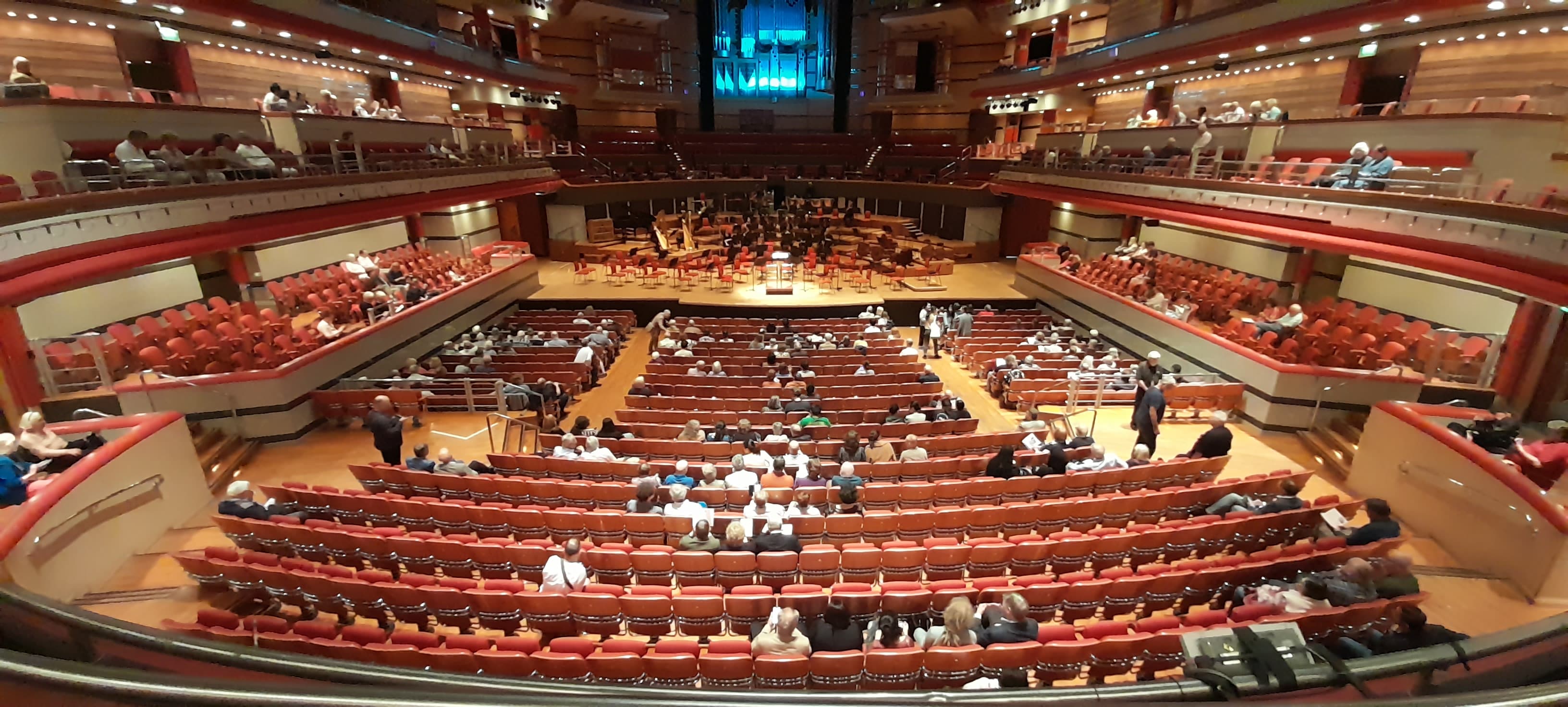Lack of surprise about Dutoit and Levine
mainEver since James Levine was first accused of molesting young males, no-one in the opera world has been shocked or surprised by the identities disclosed.
The same applies to Charles Dutoit, who was accused today by four women of forcing himself on them.
Over recent weeks Slipped Disc has received accusations from three women, one of whom has now commented on Dutoit (see top comment on previous post). We have been seeking independent verification for these cases, but the fact that the same names came up in the allegations suggests that there might be substance to them.
Dutoit has yet to respond. Levine has issued a denial of sorts.
The focus now turns to those institutions where sexual assaults flourished.
Our commenter Fiona says of Tanglewood, for instance: ‘I have never felt angrier or less protected by an organisation.’ We have heard much the same from other former interns.
The Boston Symphony needs to conduct a thorough investigation and to publish the full results.






How is the Boston Symphony more responsible for investigating than the Boston PD? Or Massachusetts State PD? Good grief, criminals should be prosecuted by the legal system, not the court of public opinion (or HR departments).
The problem, of course, is that there are statutes of limitations on most crimes, and when they come to light only years or decades after they occur, it is difficult, if not impossible, for the state to prosecute. It is not, however, impossible for individuals and the organizations that they run to refuse to do business with an alleged criminal, at any time.
Statutes of limitations have a genuine and beneficial purpose, for defendants, and eliminating them should not be considered lightly. What we need is a climate of support and encouragement, so that people who claim to be victims will come forward sooner, and not fear retribution so much.
If the BSO knew about it and did nothing, they may no longer face criminal or legal liability, but there is certainly reputational harm. Especially if this is happening at Tanglewood, which every summer draws several hundred high school and college students who interact with BSO members, other faculty, conductors, visiting soloists, etc.. Human nature being what it is, I’d be surprised if there haven’t been dozens of incidents over the years where the adults abused their positions of power over students. Best deal with it through an investigation and implementation/reform of policies to make sure future victims know they can turn to management, and can count on said management to deal with such incidents promptly and effectively.
Another notorious predator. Victims are forced to laugh off countless examples of inappropriate behavior, from off color jokes, unwanted attention, advances to outright assault. A professional code of conduct must not tolerate any form of harassment if not outright crimes.
I’ve been an orchestral musician for close to forty years and have encountered this type of behavior from male colleagues, conductors and management countless times in my career. Professional survival is threatened by coming forward.
The assertion that “no one was surprised” is the sort of thing that gives generalizations a bad reputation.
That sexual harassment occurs in the classical music world should surprise no one. But not everyone is as au courant as others are or pretend to be in each of these or other comparable cases. And some of us still have reactions that include at times surprise, shock, and sadness.
Thank you for this post. Your comment serves as a good and important reminder that we should keep our perspective and realize that such news stories can and do in fact surprise many people. We in the music business have lived with the Levine facts for decades, and we forget it is new to the public at large.
I have listened to and followed classical music and conductors and musicians (mostly through recordings and reviews) for five decades and I am embarrassed to admit this is all new to me.
Clearly this is a fully blown crisis, just wondering if it might again be worth pointing out that this is a problem that flourishes in fields that are structured heavily ‘top down’. We see it in the catholic church, classical music with it’s in many ways identical power structure was always going to be vulnerable.
In that respect all this should be seen as an albeit hideous symptom. To address this problem we need to somehow address the structural issues and the good news is that by doing so we will also be able to confront other related structural problems such as audience decline.
Based on the long standing complaints by women about workplace harassment… it’s problem wherever men believe thy will get away with it. Doesn’t matter how the org is structured. It can be anyone from the CEO to the guys on the loading dock if they think no one will back up the victim’s story.
The question is his can you change human nature.
Since Biblical times men in power have attempted and in most cases succeeded in pursuing women they had personal power over.
This is not unique to Opera or the performing arts.
Remember the casting couch has travelled though the world
It made its way to Capital Hill, K Street, Rockefeller Center and Universities.
I know the question but in do not have the answer.
How do you remove stripes from a zebra?
How do you stop the powerful from praying on the weak?
I do not have the answer
Does anyone?
No I do not have the answer unless men whom have matured in soul that unwanted approaches not returned are affirmatives that counter transference ensues .. might the use of a fan flash a welcome flirting response that woman accepts an advance? Certainly not a crude display of male endowments which are forced upon her creating an
unpleasant environment and unwanted pressure. Even animals “flirt”, they do not force whenever they are not a
chosen partner. Men must cultivate to accept a “no”, maybe try again to please — don’t think they possess the
sensitivity to even try to understand, too crude a world.
I don’t think changing human nature is the issue. Restraint and response, support and retribution are the issues.
Organizations are responsible for providing a safe working environment. They need to ensure their employees know what behaviors are unacceptable. They need to provide ways for employees to report problems and handle those reports properly. And they need to follow through to the extent possible to make sure illicit behavior is not repeated or just transferred elsewhere.
That’s a lot to do and there will still be problems. But better to get to work than just throw up our hands because we can’t change human nature.
One answer, not a perfect answer, is at least an enlightened society can make this kind of behavior illegal and criminal charges can be pressed. And another is that when victims come forward we can believe them.
Instead of breathless speculation on who will be the next to fall, we need some clear discussion of what offenses merit which kind of punishment. It’s fine to say that behaviors previously accepted (such as telling an off-color joke in mixed company) should now be considered questionable. It’s fine to say that behaviors previously *tolerated* (whether liked or disliked, such as touching without an explicit invitation to touch), should now not be tolerated. That’s societal change at work. It is *not* fine to say that all offenses merit the professional-death penalty without trial. Grand larceny and passing a rent check that you know will bounce are both wrong, but we don’t stipulate jail time for both.
The artistic environment is inherently sexual, and is inescapably more “personal” than “procedural” – so we’re in for a lot of grief here if we don’t start drawing some clear distinctions and some clear guidelines for how to reach conclusions. It’s not good enough to say “women have been putting up with s*#t for too long.” Yes, they have – but failure to distinguish between the clueless, the offensive, and the criminal is not going to help. The real burden here falls not on the accused or the accusers, either of whom may be anywhere from rational to nuts, but on the administrators and media gate-keepers (NL included) who have decisions to make about what happens next in any given case.
“The artistic environment is inherently sexual…”
No. No more than the million other situations where people interact.
That’s really just a conceit of artists who imagine their horniness is some exceptional gift that everyone else needs to accommodate.
There’s really nothing exceptional about it. Cole Porter even wrote a song about that.
I wouldn’t have thought it needed explaining, but the arts often have sex and lust as topic matter, and depend for their effectiveness on the participation of people whose inhibition levels may be, on average, different from those typical of some other work environments. That doesn’t excuse bad behavior, but does absolutely result in a different environment. You’re entitled to say “no” to that, and anyone who has experience in artistic and other work environments can decide whether to agree with your “no” or not, but you’re not entitled to speak for what artists “imagine.” I’d recommend speaking for your own imagination.
There may be certain corners of the arts that could be deemed “inherently sexual,” such as actors or opera singers who may be required to enact intimate scenes, but I can assure you that there is nothing inherently sexual about orchestral music (the topic of this report). We simply sit in our chairs and play the music; the conductor stands on the podium, conducts, and speaks to the orchestra in rehearsal.
Even if the subject of a work of art is sexual in nature, the production of that work of art generally is not. Tristan und Isolde may be about an illicit love affair, but the mounting of a production of the opera could only conceivably be said to involve a potentially sexual situations in the onstage or rehearsal interaction of the two main characters, in the case that the director wanted there to be physical intimacy.
Otherwise, the conductor/director/stage crew/designers/orchestra/chorus are doing completely non-sexual work.
Maybe the costume fitters?
… and here we go:
“Boston Symphony Orchestra Cuts Ties with Conductor Over Sex Allegations”
https://www.boston.com/news/music/2017/12/21/boston-symphony-orchestra-charles-dutoit
Dutoit has been out of control for decades. I remembered him guesting with the Pittsburgh Symphony in the mid-80s and playing with fire (not,however, with any personnel from the PSO). What a phenomenal Sacre du Printemps he did!! But on a personal level he was acting like a psycho. Too bad.
So a person’s professional career can be obliterated based on accusations alone? What if these accusations are not true or are stretched very far from the truth? I’m not saying they are; I’m just saying we would never know because no one would believe the accused in this hysterical climate.
Thank you for some reason here!
Very true!! Hysteria has supplanted reason and justice/fairness. Wasn’t it some Reagan Cabinet guy who, after being accused of something, asked which department he should go to to get his reputation back? If accused, most people will think you are guilty.
I find it hard to say exactly why, but Dutoit has always struck me as being particularly arrogant.
This might be a good time to review Dutoit’s history. Even if he has not been accused of sexual assault in the past he has certainly been accused of abusive treatment towards the musicians he works with. Here’s a link to a 4/18/2002 NYTimes article regarding the revolt of the Montreal Symphony’s musicians against his tyrannical behavior. Perhaps he has mellowed in the intervening years. I haven’t heard any gossip about his behavior towards the orchestra while guesting here in Boston. Of course, it’s quite possible that when he’s guesting he behaves himself better than he does with his home orchestra.
At any rate, in light of today’s news this makes interesting reading:
http://www.nytimes.com/2002/04/18/arts/dissonance-in-montreal-dealing-with-the-aftermath-of-a-rare-orchestral-uprising.html
I spent the summers of 74 and 75 with a fellowship at Tanglewood. At a reception for young European musicians, I was shocked to see a very drunk Leonard Bernstein stagger into the room and begin to caress young men and ask them if any of them “had a joint”! Fortunately, wonderful Isaac Stern rushed in to drag him out of the room. My reverence for LB’s genius remains unchanged, but none of the news is surprising,
“Wonderful” Isaac Stern also then did not report LB to the proper authorities and banned him from the BSO.
Yes, yes, it was the 70s, times were different then.
Yes, yes, it was Boston and the culture was one that allowed Cardinal Law to protect all his criminal priests in his diocese, and one that allowed the police to turn a blind eye to what was happening in the Catholic church, so it was the same culture that the BSO operated in.
Nonetheless, there were no heroes in this story, not even “wonderful” Isaac Stern.
I was at Tanglewood in the early 80s and that same type of behaviour by Bernstein was the subject of much gossip among the students. It don’t remember anyone ever talking of doing anything about it.
On the other hand, I was at Stony Brook in the same period of time and well remember the end of a certain famous cellist’s teaching career, amidst allegations of sexual abuse (including forced enemas) of some of his female students. So even at that time, there were some lines to be drawn – but things were always “taken care of” as quietly as possible, and without criminal charges, as far as I know.
Get this through your collective thick, dense skulls:
– Levine: consensual sex
– Dutoit: nonconsensual assault
Levine was NEVER “accused of molesting young males”, not one of the accusers who publicly identified themselves in the mainstream press alleged it was against their will to engage in mutual masturbation with Levine. NONE.
NAME ONE and I will stop posting here. If you can’t, YOU stop posting here.
Ashok Pai said it was against his will.
Untrue. From the NYT:
“He said that the relationship continued for years and that his feelings were complicated: He shared a copy of a Western Union Mailgram he had sent to Mr. Levine at the Salzburg Festival in 1988 that contained the postscript “P.S. I love you.”
Sure, 30 years later Pai is claiming he did not consent. But at the time, he continued the relationship for years proclaiming his love for Levine.
Plus, if the Illinois police department thought Pai’s accusations were credible 30 years later, they would not have decided not to pursue Pai’s charges.
And that is the pattern of Levine’s accusers: they continued the relationship for years, following Levine from city to city as his career grew, riding on his coat tail.
That is NOT the pattern with Dutoit’s accusers.
Can you imagine of any one of the 6 women accusers of Dutoit had said, “after he stuck his tongue down my throat, it continued for years, my feelings were complicated, I told Dutoit I loved him”???? We would be laughing these 6 women accusers off this site. But that did not happen.
The people who refused this offer of consensual sex found there was a career penalty to pay after they did. Levine’s demand for sex was really not consensual like two people who meet at a party and decide to decide to jump in the sack is.
Perhaps not an actionable crime but still a serious abuse as a leader of musicians by Levine and his future access to musicians is what’s being acted on by these various cancellations of engagements and positions, not criminal penalties.
You cannot have a self-serving definition of “consent” to mean: it was “consent” if my career took off after sleeping with him, but it was “not consent” if my career tanked.
Is that what they have?